‘Where are we going?’: State Council of Tatarstan become concerned over the problem of teaching in schools in Tatar
Parliamentarians heard a report on the work of the Ministry of Education and Science and discussed the problems of secondary education
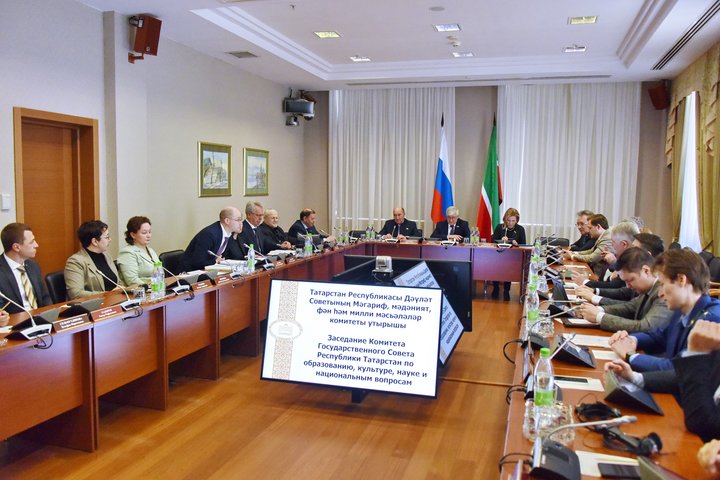
The results of the implementation of national projects in the field of education, the problems of secondary vocational education system, the peculiarities of using the Pushkin Card in the republic and the reluctance of parents of students of the titular nation to teach children in schools in their native language were discussed in the State Council of Tatarstan at a meeting of the Committee on Education, Culture, Science and National Issues on 9 April. Read the details in the material of Realnoe Vremya.
“Coverage is 100 percent”
“As a result of the implementation of the activities of the state programme of the Russian Federation “Development of Education”, the state programme “Development of Education and Science of the Republic of Tatarstan for 2014-2025", including the national project “Demography”, the federal project “Modern Appearance of Rural Territories” of the state programme of the Russian Federation “Integrated rural development”, it was possible to ensure the availability of preschool education for children of all age categories at the level of 100 percent," First Deputy Minister of Education of Tatarstan Andrey Pominov reported at a meeting of the Committee on Education, Culture, Science and National Affairs.
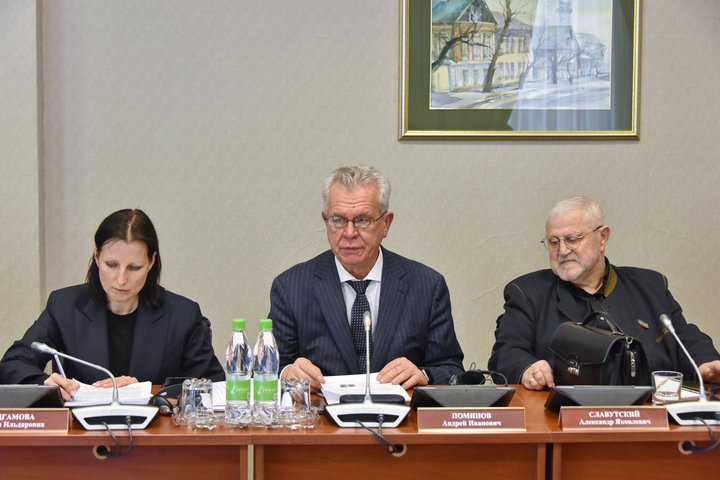
As of today, he noted, there are 1,945 pre-school educational organisations in the republic, in which 201,632 preschool children are educated. He emphasised that there are 51 kindergartens in the Republic of Tatarstan with education and training in the Chuvash language, 15 — in Udmurt, 8 — in Mari, and 1 — in Mordovian:
“The coverage of education and training in the native (non-Russian) language in the Republic of Tatarstan is 56.8 percent.”
The deputy minister also recalled that in 2023 4 kindergartens for 1,000 places were built, including 220 places in the village of Novotroitskiy in the Tukayevsky municipal district, 340 places in the 69th microdistrict of the residential complex Yashlek in Naberezhnye Chelny, and two kindergartens for 220 places each in the 59th quarter of Kazan.
There was no information about how the problem of kindergartens in long-suffering suburban settlements like Bogorodsky and Kuyukov is being solved.
Again about the lack of schools
“In 2023, 12 general education facilities for 9,974 places were built, including an additional building to the existing school for 300 places," said Andrey Pominov.
It seems to be a lot, but here's how the parents of schoolchildren reacted to the news about the construction of a school in the residential complex Vesna-2 in the telegram channel of the Kazan City Hall: “Meanwhile, there are more than 2 thousand children in Vishnevka, Privolny and Novaya Vishnevka and not a single school. When will our children have the opportunity to study at school next to home, not 8 km away through all the morning traffic jams with two transports?" There was no answer to this question either on the Internet or at the meeting.
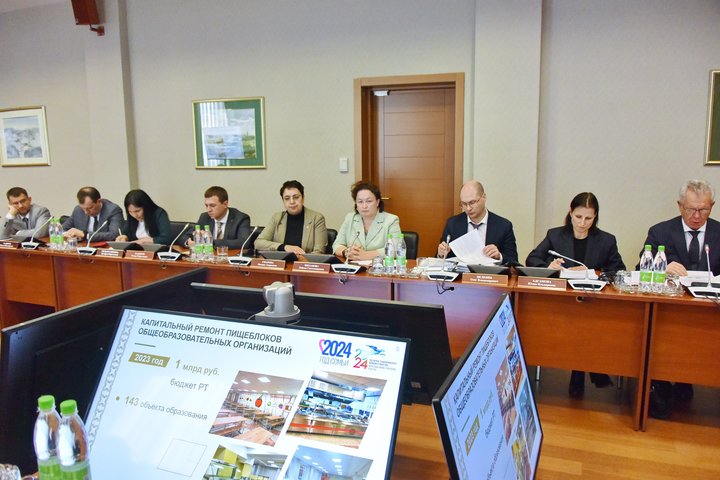
But there was also a scandal that thundered throughout Russia last year in a doubly overcrowded Maloshilenskaya school, whose pedagogical staff, together with the director, almost slammed the door. The scandal was hushed up, the teachers took pity on the children and stayed at their jobs. But new school in the village never appeared.
In fact, the issue of low salaries for teachers, who are forced to combine two rates for the sake of decent earnings, has not been resolved.
“For the performance of the functions of a class teacher, payments are made to teaching staff in the amount of 550 rubles per class and 80 rubles per student per month," he cited modest amounts of additional payments for the difficult educational component of the teaching work of the deputy minister. “At the expense of the federal budget, teaching staff of educational organisations for classroom management additionally receive a monthly monetary reward in the amount of 5 thousand rubles per month per classroom teacher.
“We have nothing to do in the villages anymore”
After the report on schools, Deputy Chairman of the State Council Marat Akhmetov, who was present at the meeting of the committee, raised the issue of teaching in the Tatar language. Noting that the republic's schools currently have more than a modest number of classes with education in Tatar, he was outraged:
“Where are we going?" and he suggested “not to give this work [to increase the number of students in their native Tatar] to municipalities and parents.” However, he did not explain exactly how the situation could be changed. But he noted that “we have nothing to do in the villages anymore, there are no young people there” and recommended that we focus on urban schools.
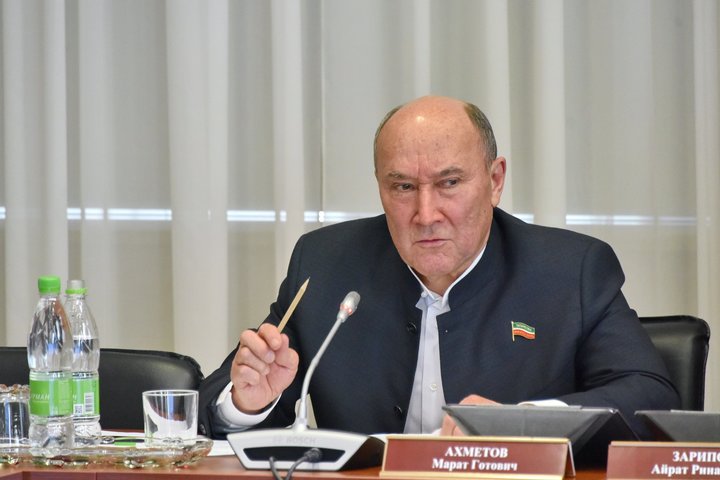
After discussing how this can be achieved, which, alas, did not end with the development of at least some kind of action plan, but only with the statement of that even in the pollingual complexes Adymnar the situation with teaching in Tatar is sad, the member of the committee, director of the Kazan Bolshoi Drama Theater named after V. I. Kachalov, famous director Alexander Slavutsky, took the floor:
“Parents say (refusing to study in Tatar in favour of “Russian” classes, — ed.) that “they teach better there”…
Another participant in the discussion noticed that there is another way:
“In big Russian schools, Tatar classes “dissolve”. It is necessary to open two schools in new neighbourhoods — with Tatar and with Russian as the language of instruction, in order to create an environment for the Tatar language.”
But no one picked up on this idea — in a situation where there are not enough schools in principle, it looked utopian.”
Where the teacher turns away on the way to school
However, at the meeting, a new trend was very actively discussed — more and more students leave school after the 9th grade and go to secondary vocational educational institutions.
“The number of graduates who leave after the 9th grade is about 35 thousand," said Pominov. “And 18-25 thousand of them go to vocational institutions.”
No one began to analyse the reasons for this trend — the participants of the meeting began to discuss another problem — using the example of the Kazan pedagogical college, where the competition reaches 10 people per place. It turns out that against the background of a shortage of teachers, yesterday's schoolchildren who want to become teachers are deprived of this opportunity, the committee members concluded.
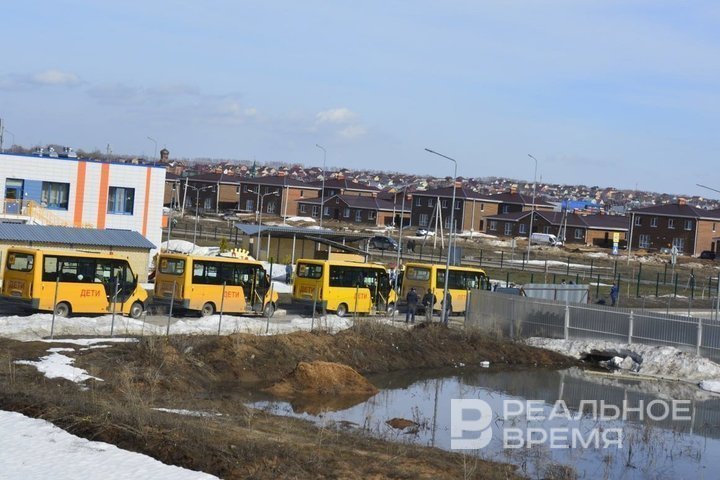
Commenting on this situation to Realnoe Vremya after the meeting, Andrey Pominov explained that not everything is so sad:
“In fact, everything is not so terrible, those who do not enroll the Kazan pedagogical college go to other educational institutions.”
“Do many of them reach schools?" the correspondent clarified.
“A significant part of them drop out — get married, go to universities.”
“And graduates of pedagogical universities — what part of them come to schools?"
“We only keep track of how much come… But many people do not come to school, for the same reasons — they get married, they leave. They find more interesting work. Because higher education gives you more freedom of choice than secondary education.”